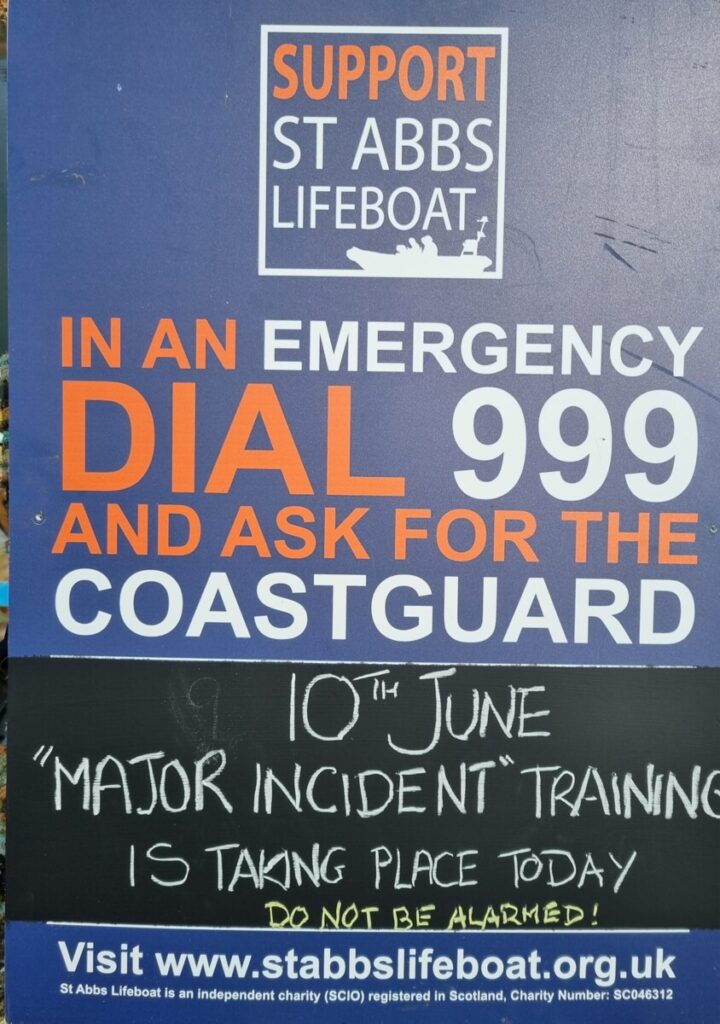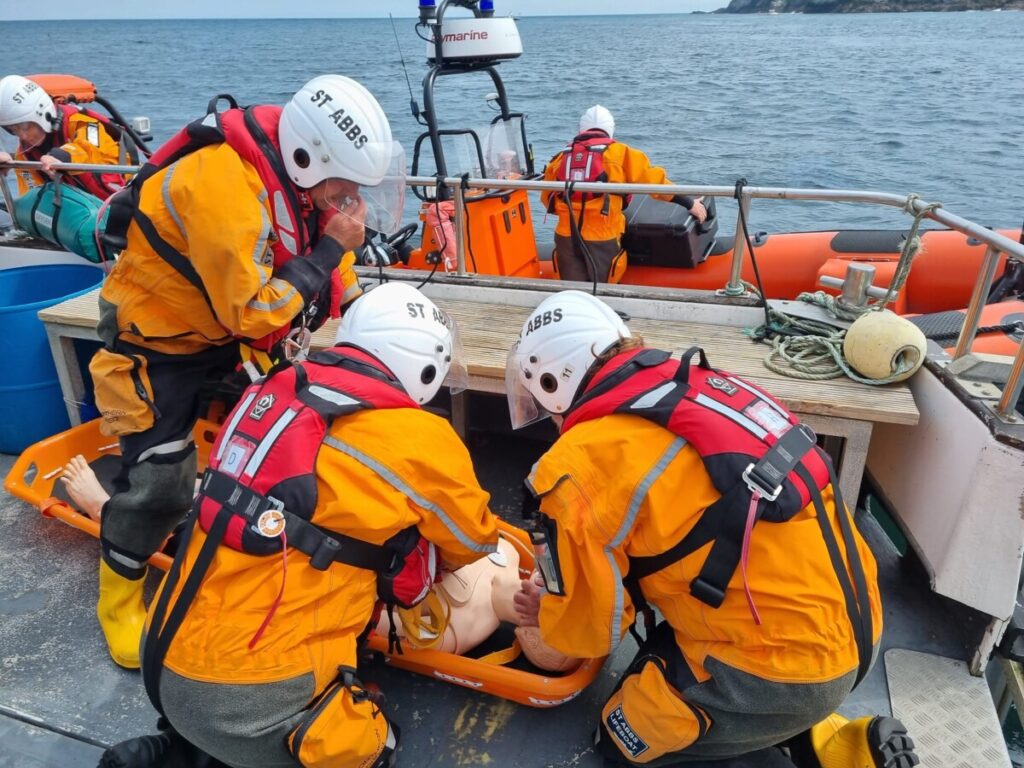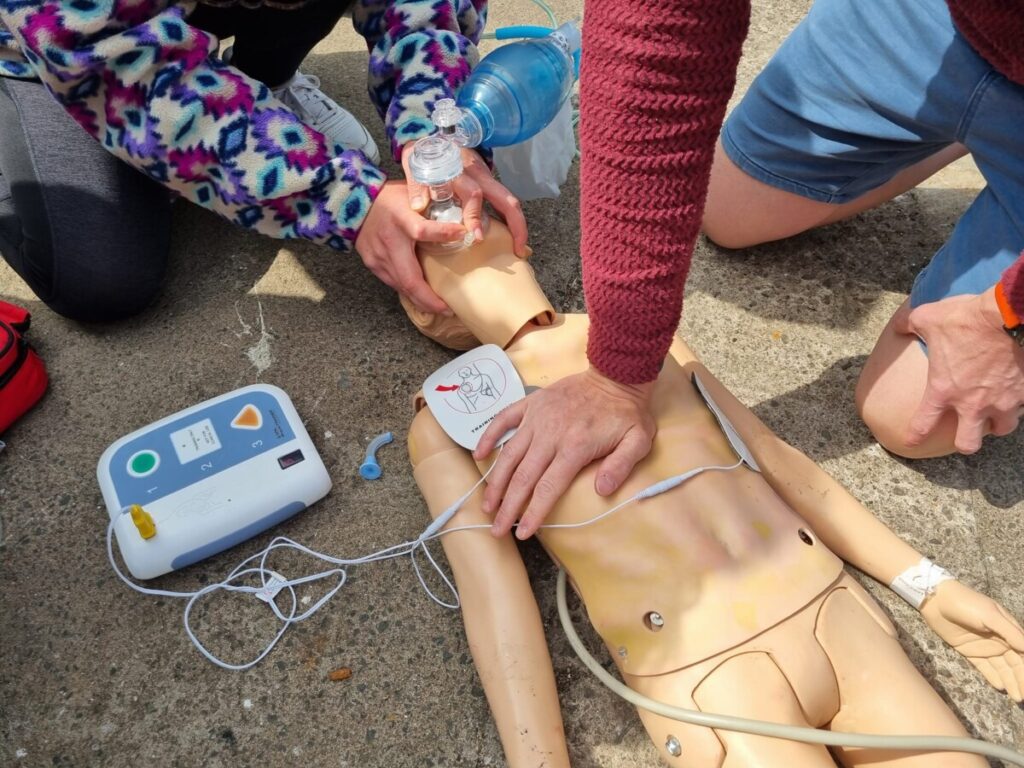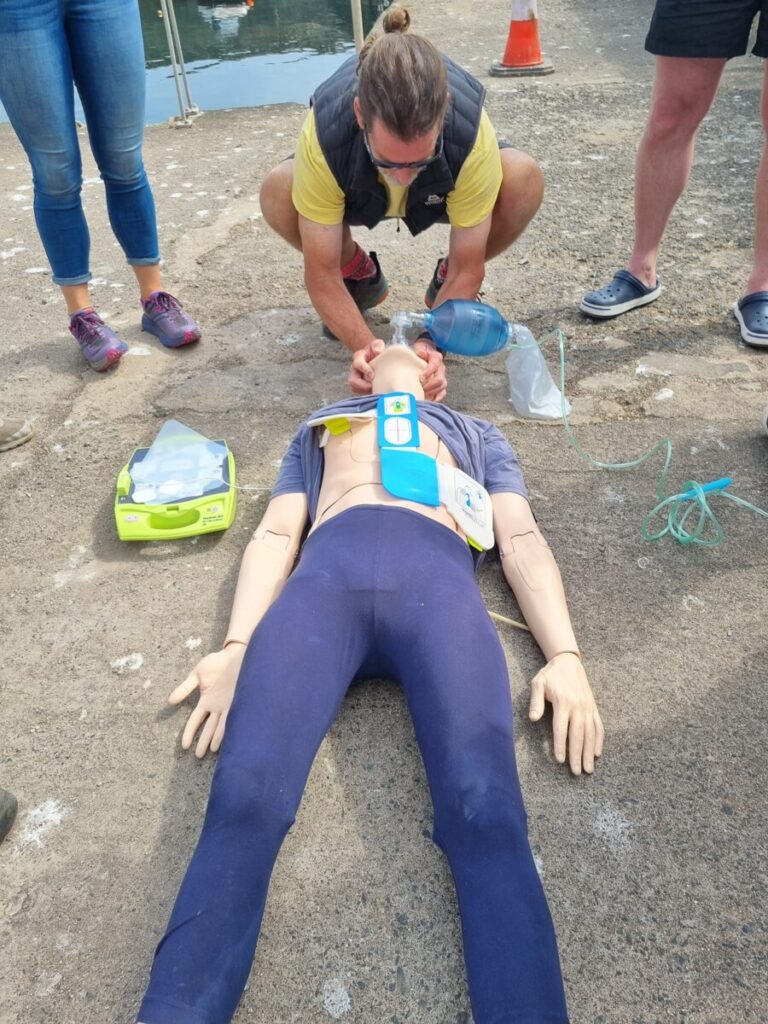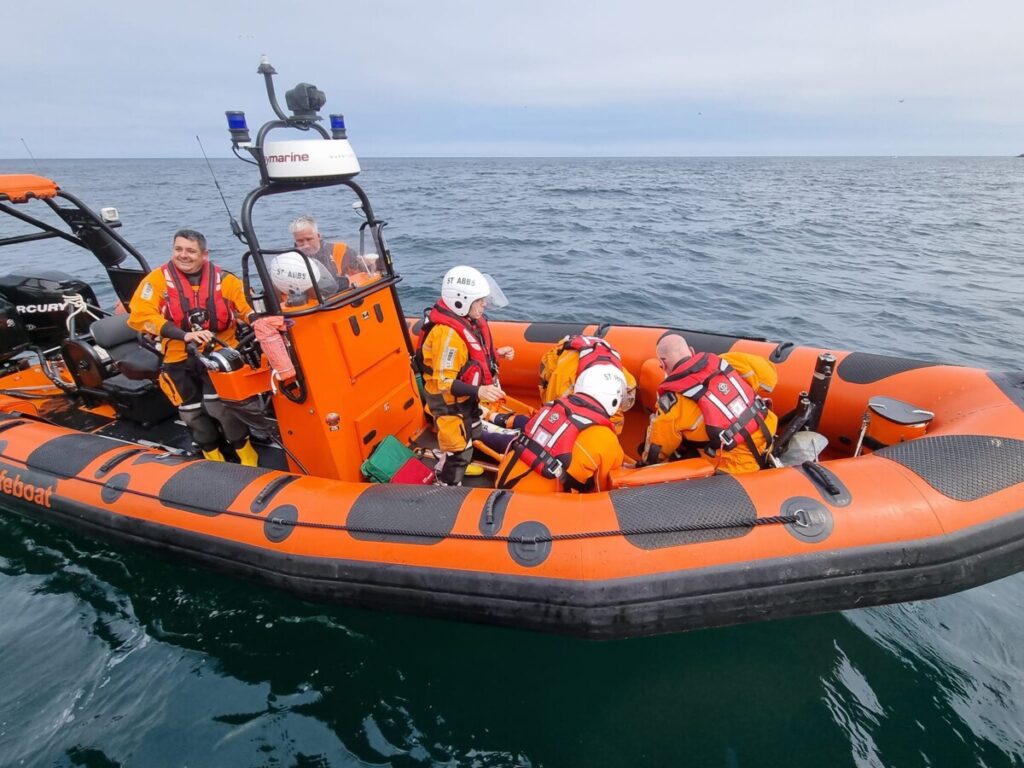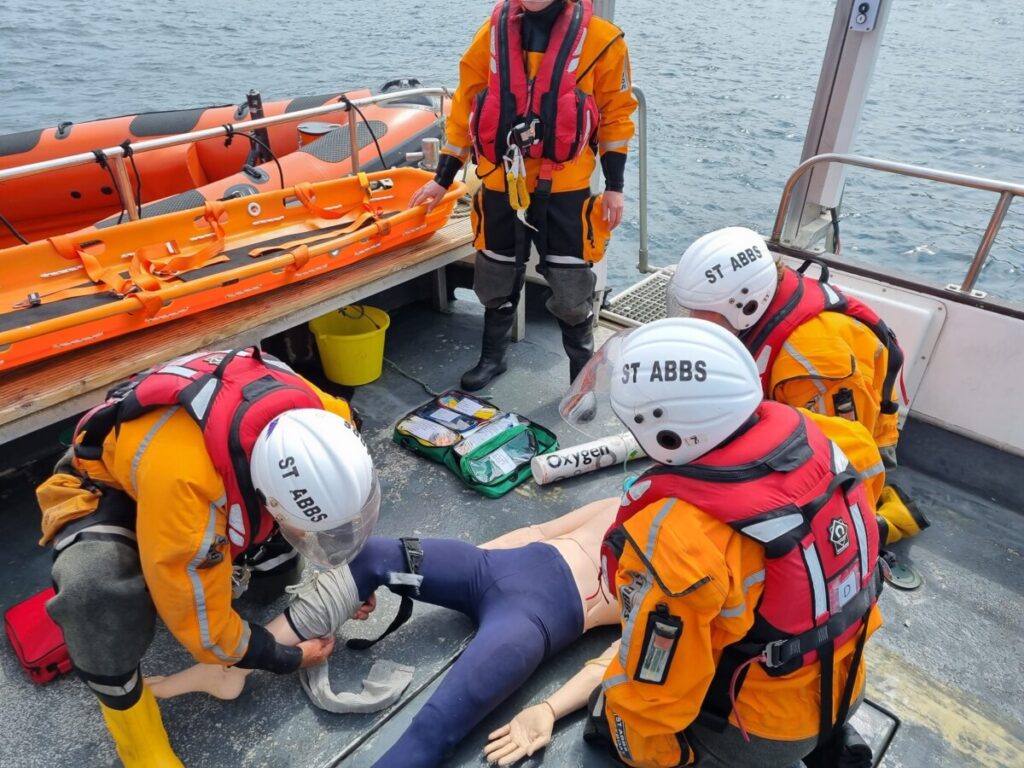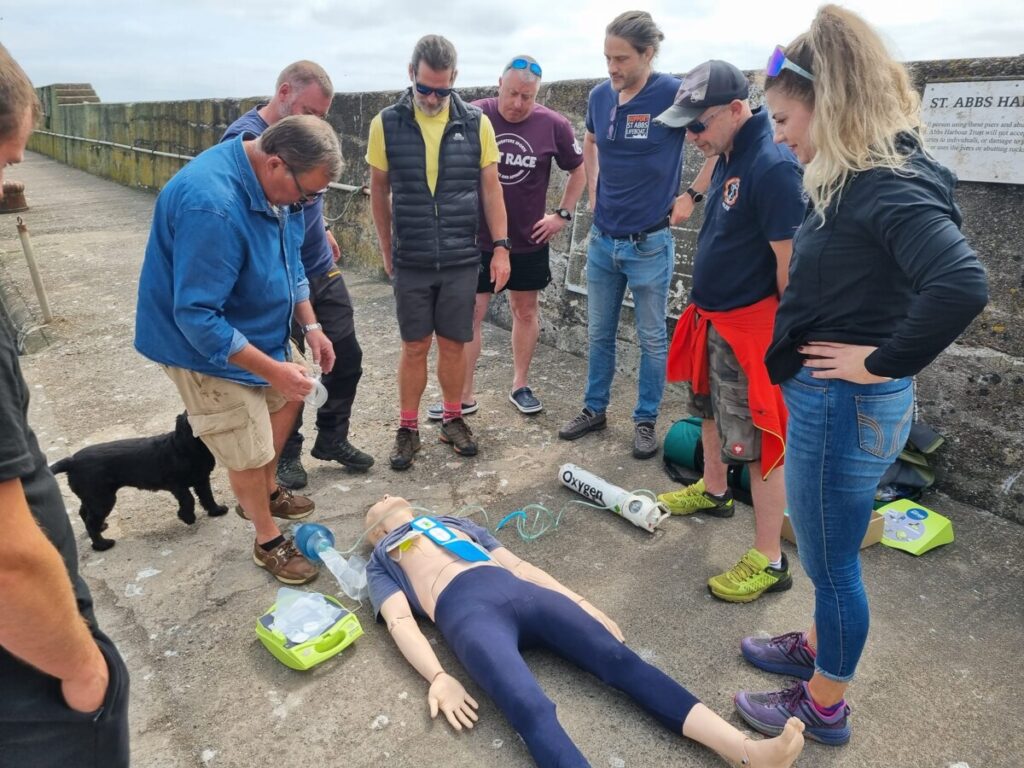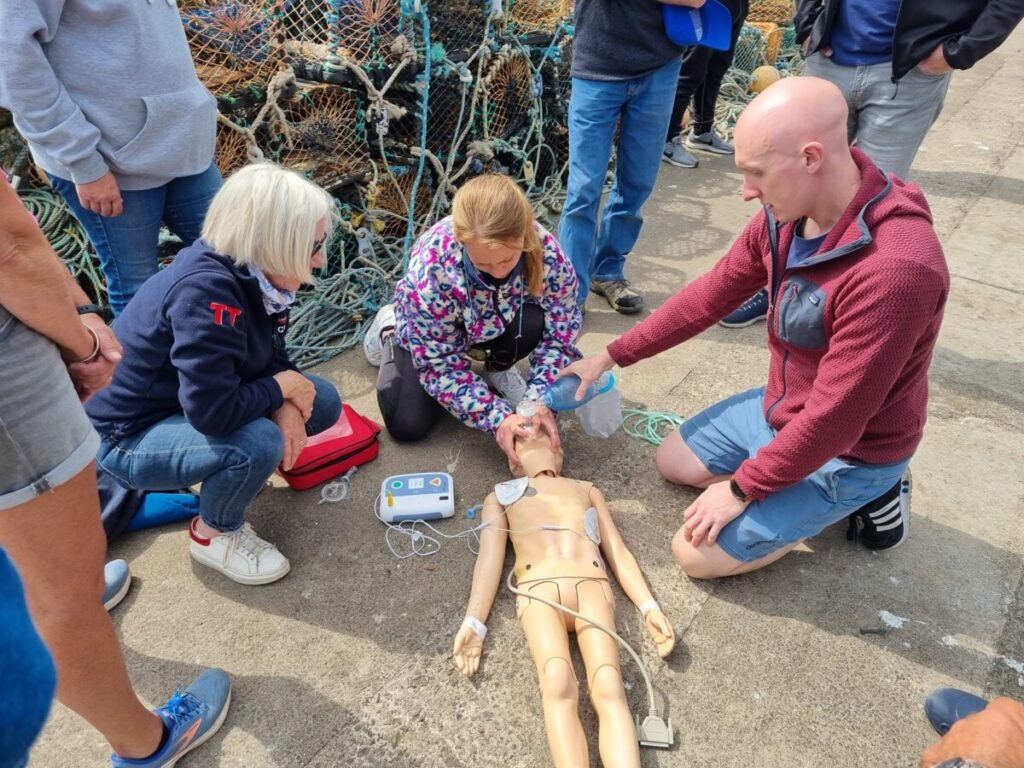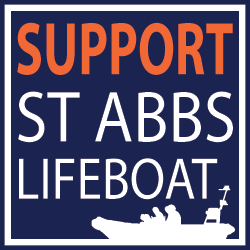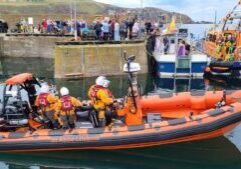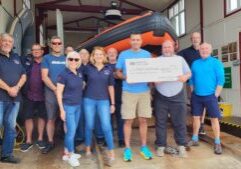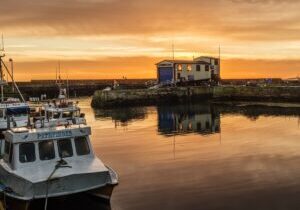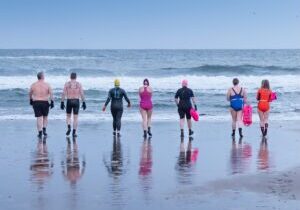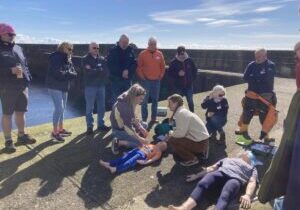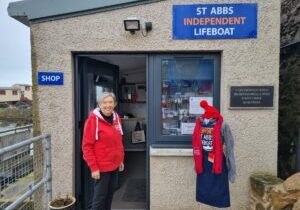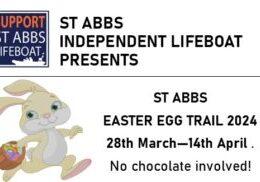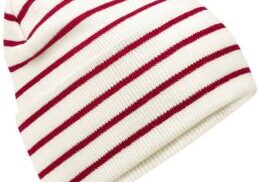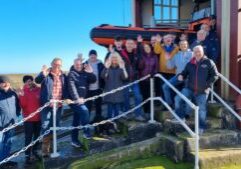Training is obviously an essential part of our crew commitments over the year. Crew are asked to attend a certain number of training sessions and to complete training in a number of core competencies. These include tasks such as boat launch and retrieval, boat handling, navigation, tide and weather, anchoring and veering down, search and rescue, man overboard and recovery and ropework, amongst others. Following independence, the crew also decided that each and every crew member would undertake training in first aid given that a high proportion of our shouts are to medical emergencies relating to divers. In all types of training “hands-on” experience is essential and with Lifeboat training it is also important to train in environments that reflect reality, not just in the classroom.
This year we have decided to invest considerably in crew training, particularly as we have 4 new crew recruited to the team. All of our crew are trained in first aid by completing the Maritime and Coastguard Agency / Sea Fish Industry Authority approved First Aid Course. However, being Independent gives us the opportunity to take our training to higher levels. To this end, today we have carried out “major incident” training both in the harbour and on a dive boat. Crew practiced with manikins and live actors to simulate a stricken diver who had injuries from contact with a boat propellor. This exercise involved numerous core competencies in relation to boat handling alongside another vessel, boarding of the vessel, assessing the casualty, providing required first aid and transferring the casualty onto the Lifeboat. All these tasks were made just that little bit harder by the steady swell of the sea. It was essential that the crew didn’t know what they were heading out to and the actors on the boat made the situation as lifelike as they could. The day was organised and overseen by our clinical governance doctors, Lyle Moncur and Ross Archibald, as well as A&E doctors Caitlin and Annabel. Lyle Moncur works as a consultant in emergency medicine and major trauma in Edinburgh Royal Infirmary. He is also a pre-hospital care doctor with the Great North Air Ambulance Service. Ross is a Consultant in Emergency Medicine at St John’s Hospital and Royal Infirmary Edinburgh, and has recently completed a Fellowship with the Emergency Medical Retrieval Service in Glasgow. We are incredibly lucky to have such highly qualified mentors as part of our team.
Earlier in the year in March we sent 4 of our crew down to the RNLI College at Poole to attend a two day Crew Emergency Procedures training course. This involved doing day and night capsize drills, sea survival drills, firefighting and pyrotechnics training. Undertaking the capsize drills is essential for all crew for obvious reasons and they make it realistic, but safe, at the training college with their large wave machine. Its not something we can practice locally! We also simulated a mass rescue scenario earlier in the year with Lothian Sea Kayak Club. It was a good opportunity for the crew to demonstrate techniques for getting kayakers on board, but also for the crew to learn more about the kayaks themselves and how to retrieve them.
This year we are also sending our 4 new crew on the RYA2 powerboat training course. This is an essential course for ensuring crew have the necessary powerboat skills to handle the boat should the helm need assistance for any reason. It is also required for our own insurance purposes. It’s a great course, heading out of Port Edgar in Edinburgh and practicing skills under the Forth Bridges which is stunning in good weather. Of course many of our crew already have these skills and certificates having boats of their own or working on commercial boats in and around the area. We are lucky to have such skilled crew, but the most important knowledge is local knowledge.
